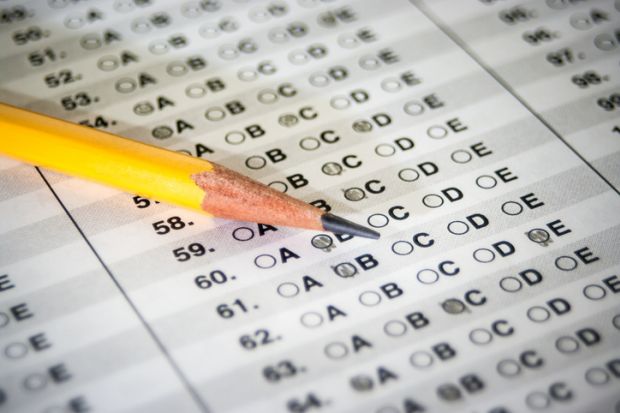The US’ College Board has announced the possibility of letting high school students take its long-venerated SAT admissions test in their homes, while admitting the likelihood of major inequities in the process.
The century-old educational resources company, which generates $1 billion (£800 million) a year in revenue, described its decision as driven by concern for student safety at a time when the coronavirus threat has resulted in closed schools and deterred virtually all public gatherings.
Yet top College Board officials conceded that the SAT − already widely criticised as favouring the wealthy − stands to grow even more skewed by family resources when conducted in an at-home environment.
“We have to acknowledge,” said David Coleman, the College Board’s chief executive officer, “that certain families with less resources, while they will be able to test, have faced many other hurdles and other difficulties.”
The result, Mr Coleman told a media briefing, will put even more pressure on college admissions officers and others “to recognise the very different circumstances facing some students”.
But critics of standardised tests suggested the College Board was headed towards a new low and urged institutions that haven’t already dropped the SAT from their admissions processes to do so.
The College Board and its chief competitor, the ACT, make tests with “horrible, racist histories”, Jon Boeckenstedt, the vice-provost for enrolment management at Oregon State University, wrote in his admissions policy blog. Almost no universities actually need the tests to make good admissions decisions, Mr Boeckenstedt said.
For the public announcement of its plans, however, the College Board brought along two state education officials and a college administrator who endorsed its approach.
The officials from Illinois and West Virginia said their states buy the SAT as both a high school completion exam and a “free college exam”, and thanked the College Board for its flexibility. The board has been cancelling SAT exams scheduled for this spring during the school closings and said it will begin offering the at-home tests in the fall in what it considers “the unlikely event” that schools are not open by then.
The college administrator, Kristina Wong Davis, the vice-provost for enrolment management at Purdue University, called standardised testing an “important part of the college application process”. She also reiterated the board’s warning about disadvantaged students, saying the need to keep SAT scores in context “has never been more important than it is now”.
The College Board is confident in being able to run at-home tests, Mr Coleman said, because it has been experimenting with “digital” versions, having administered tens of thousands of them in institutional settings over the past five years.
“As a question of science and psychometric validity,” he said, “we can absolutely do apples-and-apples comparisons between the at-home test and a digital test, and those taken within a school or taken under other circumstances.”
Mr Boeckenstedt expressed scepticism, saying the College Board “has had a less-than-sterling record of test security in the last decade because it couldn’t keep reused tests off of Reddit”.
Tara Miller, a college counsellor with the Austin Independent School District in Texas, warned on Twitter that low-income high school students stuck at home with younger siblings and poor internet resources would face major disadvantages. “The inequity is astounding,” she said.




